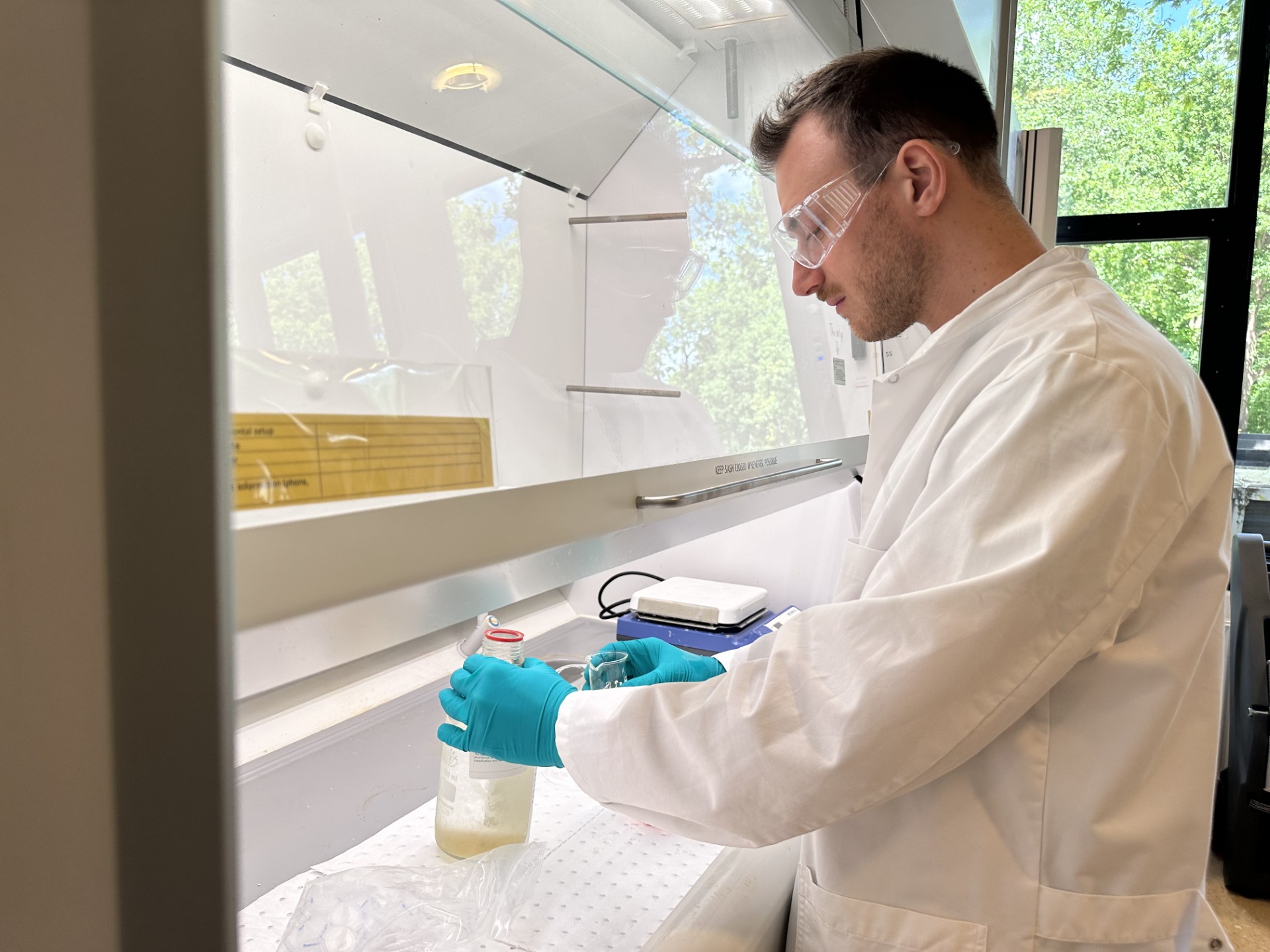As part of DTU Offshore's commitment to supporting sustainable energy practices, Neri’s research plays a crucial role in addressing the environmental challenges associated with offshore oil and gas operations. Recently completing a PhD in ecological geochemistry, Neri now continues as a postdoctoral researcher, focusing on the impact of produced water on marine ecosystems and the potential for resource recovery from industrial waste streams.
Researching the Unknowns of Produced Water
Produced water, the largest byproduct of offshore oil and gas production, is routinely discharged into the sea. However, the composition and environmental consequences of these discharges remain under-characterised, particularly when it comes to inorganics, such as heavy metals or generally potential toxic elements (PTEs). Neri’s PhD research sought to fill this gap by conducting detailed compositional analysis of produced water samples, with a specific focus on metals and their toxicity.
“Produced water is a complex and highly saline mixture,” Neri explains. “Its composition varies depending on the reservoir and even fluctuates over time at the same site. This complexity poses challenges for accurate chemical analysis and environmental risk assessment.”
Neri’s work involved optimising analytical methods to measure metal concentrations and assess their potential toxicity to marine organisms, since ecotoxicological studies provide further insight into the potential ecological risks posed by produced water discharges.
Supporting a Sustainable Offshore Sector
While offshore oil and gas production continues to play a role in today’s energy systems, Neri’s research directly contributes to improving environmental practices around offshore platforms. It directly supports the European ambition of achieving zero harmful discharge by 2050. His findings are informing better monitoring, treatment, and regulation of produced water today, while also laying the groundwork for long-term solutions. Achieving the 2050 goal requires both immediate action and deeper knowledge of what produced water contains, how it affects marine life, and how its impact can be mitigated.
“Future environmental regulation will demand zero effects around offshore platforms. To achieve that, we must first understand every component of produced water and its interactions with marine ecosystems,” Neri says.
In addition to toxicity studies, the research explored the potential for resource recovery. Produced water contains valuable elements like lithium and magnesium—materials increasingly important to the green transition. By identifying these elements, the work opens the door to future studies on critical raw materials recovery from industrial waste streams.
Collaboration Across Disciplines and Institutions
By collaborating with geologists, chemists, biologists, and external partners, the research gained a broader perspective and relevance. “Environmental problems are inherently interdisciplinary. The natural world is interconnected, so our research approach must reflect that,” Neri notes.
Throughout the project, Neri worked with several national and international institutions, including NIVA (Norwegian Institute for Water Research), GEUS, DTU Sustain, DTU Food, and Aarhus University. These partnerships enabled in-depth analysis of produced water composition, sediment impacts, biological toxicity, and even assessments of radioactive elements and contamination in marine organisms.

